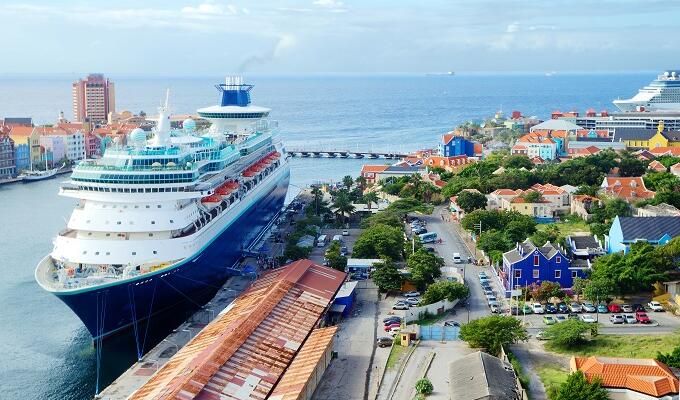
Curaçao turns toward technology to build a resilient economy
Technology and services are at the heart of a new trade development roadmap for Curaçao endorsed by the Caribbean island’s Council of Ministers on 22 April 2020.
The roadmap – which was developed after extensive consultations with key stakeholder groups with help from specialists at the International Trade Centre – provides the vision, priorities and way forward for the country’s new National Export Strategy.
‘We must ensure that this National Export Strategy continues,’ Prime Minister Eugene Rhuggenaath said. ‘We need it.’
Curaçao, an autonomous island nation of 160,000 people within the Kingdom of The Netherlands, has seen two of its three economic pillars (oil refining and financial services) decline rapidly over the past two decades, while the third – tourism – has struggled to compensate.
Like many small islands in the region, Curaçao is especially vulnerable to the effects of climate change and financial turbulence – and now the COVID-19 pandemic.
‘The impact of the COVID-19 pandemic reveals the specific vulnerabilities of small island states,’ ITC acting Executive Director Dorothy Tembo said. ‘Curaçao’s timely move to build a more resilient and diversified economy, founded on sustainability, and underpinned by technology is a smart response. We at ITC are pleased to be accompanying Curaçao through this strategic transition.’
The National Export Strategy identifies technology, in particular digital solutions, as a way to strengthen and link all economic activity in Curaçao.
To diversify the country, the National Export Strategy identifies six priority sectors that have the potential for high growth, adding value to exports and foreign exchange earnings. These sectors include:
• IT services
• education services
• port and maritime services
• tourism
• creative industries
• financial services
These sectors are reinforced by trade support functions to benefit all firms and exporters within the economy, and include:
• trade information
• trade promotion
• trade facilitation
• skills and entrepreneurship
Crucially, the concept of ‘e-government for business’ underpins the entire framework. This means transitioning relevant government services to online platforms to make doing business easier and more efficient.
The challenges the country now faces due to COVID-19 magnify its existing weaknesses. The National Export Strategy is well placed to tackle these weaknesses head-on and outlines a path for an economically diversified and resilient Curaçao.
Specific and detailed sector and functional plans will be created in consultation with stakeholders that have a bearing on the future success of Curaçao’s export sector during the next stage.
In March 2020, members of the World Trade Organization endorsed Curaçao’s bid for independent membership, and the National Export Strategy will further help the island develop its economic identity and establish its place on the world trade map.



